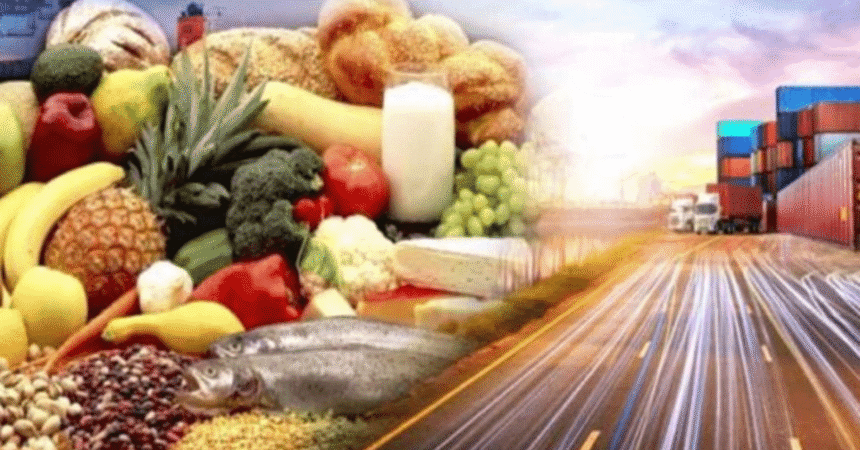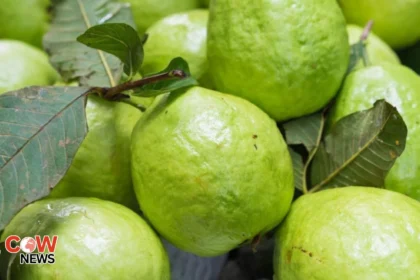In a noteworthy development for Pakistan’s economy, the country has reported an 18% reduction in its food import bill, bringing the total down to $1.06 billion. This significant decrease reflects changing consumption patterns and various economic adjustments within the country. The most substantial drop has been observed in the import of milk, which has traditionally been a major component of Pakistan’s food imports. This article delves into the reasons behind the decline, its implications for the domestic food industry, and the broader economic impacts.
Economic Context and Import Trends
Pakistan’s food import bill serves as a key indicator of the country’s economic health, revealing both domestic consumption patterns and international trade dynamics. Historically, food imports have been a substantial part of Pakistan’s trade balance, influenced by factors such as domestic production levels, consumer demand, and global market conditions. The recent 18% drop in the food import bill is a significant shift, indicating that changes are occurring both within the domestic market and on the international stage.
The decline in the food import bill can be attributed to several factors. Firstly, there has been a noticeable shift in consumption patterns within Pakistan. As local production of certain food items increases and consumer preferences evolve, the demand for imported goods may decrease. Secondly, changes in international trade conditions, including fluctuations in global food prices and trade policies, have also contributed to this decline.
Significant Decline in Milk Imports
One of the most striking aspects of the recent decline in the food import bill is the substantial drop in milk imports. Milk and dairy products have long been a staple in the Pakistani diet, making the reduction in imports particularly noteworthy. Several factors may contribute to this decline:
- Increased Domestic Dairy Production: Over the past few years, Pakistan has made concerted efforts to boost domestic dairy production. Government initiatives, subsidies for dairy farmers, and investments in dairy infrastructure have aimed to increase local milk output. As a result, local dairy farms may be producing enough milk to meet domestic demand, reducing the need for imports.
- Changes in Consumer Preferences: Shifts in consumer preferences can also impact the demand for imported milk. As consumers become more aware of the quality and safety of locally produced milk, they may choose to support domestic products over imported alternatives.
- Fluctuations in Global Dairy Prices: Global dairy prices can influence import levels. If international dairy prices rise, imported milk may become more expensive, leading to a reduction in imports. Conversely, if global prices fall, local producers may find it more competitive to produce and sell milk domestically.
- Trade Policies and Tariffs: Changes in trade policies, including tariffs on imported dairy products, can also affect import levels. If the government imposes higher tariffs on milk imports, it could lead to a decrease in the volume of imported milk.
Impact on the Domestic Dairy Industry
The reduction in milk imports has significant implications for Pakistan’s domestic dairy industry. For local dairy farmers and producers, the decreased competition from imported milk could present opportunities to expand their market share. This shift could encourage investment in the local dairy sector, leading to improved production techniques and higher-quality products.
However, the decline in imports also poses challenges. Businesses and retailers that rely on imported milk may need to adjust their supply chains and pricing strategies. Additionally, consumers may face price fluctuations or availability issues if the local dairy industry is not yet fully equipped to meet the demand.
Opportunities for Growth
Despite the challenges, the reduction in milk imports also presents opportunities for growth in the domestic dairy industry. Increased local production can drive investment and innovation within the sector. Farmers may adopt new technologies and practices to improve milk quality and yield, contributing to the overall growth of the industry.
Moreover, the decline in imports could encourage the development of new dairy products and value-added goods. For example, local producers may explore opportunities in cheese, yogurt, and other dairy products, which could lead to a diversification of offerings and increased consumer choice.
Broader Economic Implications
The reduction in the food import bill is part of a broader trend of shifting consumption patterns and economic adjustments. This decline reflects several underlying economic trends:
- Changes in Consumption Patterns: A decrease in food imports may signal changing consumer habits, including a preference for locally produced goods. This shift could be driven by factors such as increasing awareness of local products’ quality and sustainability.
- Economic Adjustments: Fluctuations in the food import bill may be linked to broader economic adjustments, including changes in trade policies, exchange rates, and inflation rates. For example, a devaluation of the national currency can make imports more expensive, leading to a reduction in import volumes.
- Government Policies: The decrease in imports could result from government policies aimed at promoting local production and reducing dependency on foreign goods. These policies may include subsidies for domestic producers, support for agricultural development, and measures to enhance the competitiveness of local industries.
Government and Policy Responses
In response to the reduction in food imports, the Pakistani government may need to adapt its policies to address the evolving economic landscape. Key areas of focus may include:
- Support for Domestic Producers: To sustain the gains made from reduced imports, the government should continue supporting local food producers. This support could include financial incentives, investment in infrastructure, and research and development initiatives.
- Monitoring Trade Policies: The government should monitor international trade dynamics and adjust its trade policies accordingly. This includes negotiating trade agreements that benefit local industries and managing tariffs and quotas effectively.
- Consumer Education: Educating consumers about the benefits of locally produced goods can help sustain the shift towards domestic products. Public awareness campaigns and promotions can highlight the quality and safety of local food items.
Conclusion
The 18% reduction in Pakistan’s food import bill, with a notable decline in milk imports, reflects significant changes in consumption patterns and economic conditions. While the drop in imports presents opportunities for local producers, it also brings challenges that need to be addressed through targeted government policies and industry support.
As Pakistan navigates these economic shifts, it will be essential to balance the benefits of reduced imports with the need to ensure a stable and sustainable food supply. By supporting domestic production, adapting trade policies, and educating consumers, the country can better manage the implications of these changes and continue to build a resilient and robust food industry.
#PakistanEconomy #FoodImportBill #MilkImports #EconomicTrends #DomesticProduction #TradePolicies #DairyIndustry #EconomicAdjustments #LocalProduction #ConsumptionPatterns #FoodIndustry #PakistaniEconomy







